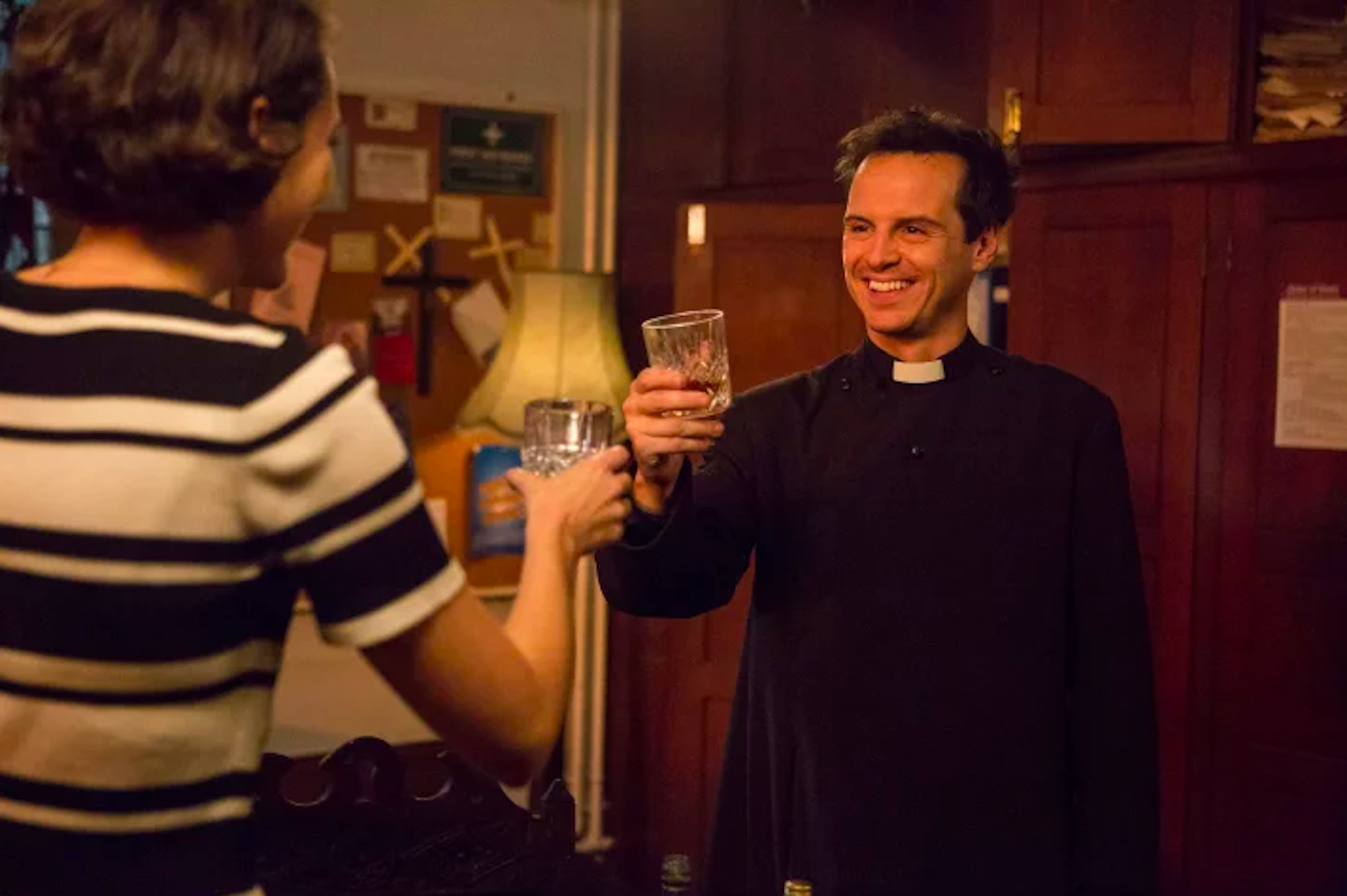Fleabag’s Hot Priest Gave Me Flashbacks to My Early Queer Thirst

Credit to Author: Jill Gutowitz| Date: Tue, 04 Jun 2019 19:43:54 +0000
Even before I dove into season two of Phoebe Waller-Bridge’s dark comedy Fleabag, I wanted to mute the phrase “hot priest” on Twitter. If you haven’t heard by now: A thirst pandemic recently took hold of straight women on social media over the Hot Priest in Fleabag, aka the lead character’s latest love interest—and new crown prince of Thirst Twitter.
Some women have been screaming “fuck the priest” at their TVs. Others are writing screeds defending their Hot Priest lust. Gay men are also extremely invested in Hot Priest, noting that he has Mark Ruffalo energy. It’s even awakening something deeper in the straights: attractions to other hot priests.
I found this chilling—all these tweets and articles about lusting after a man of God? (Men? God?? In this economy?!) I…also felt very left out. I’m a lesbian fan of Fleabag, so I was scared this season would be very much not for me, even though Phoebe Waller-Bridge’s character is queer. (When an older woman asks if she’s a lesbian in season two, she responds, “Not exclusively.”) I don’t often connect with heterosexual romance plots—and yet, after watching this season, I not only understood Hot Priest thirst, but realized that it all felt quite familiar.
(Disclaimer: I’m one of those queer women who will call anything “lesbian,” regardless of of its sexual orientation, or whether it even has the capability to have one in the first place. The color mauve? Lesbian. The actress Neve Campbell? Canonically lesbian. The moon? Dyke. This time, though, I’m serious.)
Season two picks up “371 days, 19 hours, and 26 minutes” after the first season’s end. PWB’s character, Fleabag, is at dinner with her sister Claire, who hasn’t spoken to her in a year, her sister’s awful husband Martin, her father, her father’s fiancée (played by the canonically lesbian Olivia Colman), and the Hot Priest, who is set to officiate the wedding of her dad and stepmother.
Fleabag and Hot Priest exchange lingering glances across the table. They both order tequila, and she refers to him as her dad’s “cool, sweary priest.” They bond when he meets her outside for a cigarette—he asks her a personal question and she walks away, prompting him to say, “Fuck you, then,” and smile softly at her. Basically: Unspoken lust is the cornerstone of lesbianism, and they had it in droves.
Fleabag is quick to admit to the camera that she wants to bone the priest, but Hot Priest takes more time to grapple with feeling tingles for someone who isn’t God. We know he wants to have sex with Fleabag—we can see it in how he looks at her, grazes her arm, and hovers around her—and she knows it, too. The only person who doesn’t know he’s going to fuck Fleabag is the Hot Priest himself—or maybe he does, but he definitely has trouble coming to terms with his desires. If you didn’t know, priests take a vow of celibacy, but his limitations aren’t just sexual: He’s meant to only love one being, and that’s God.
Things between Fleabag and Hot Priest come to a head after they nearly bone in the church, when Fleabag cries to him in a confessional booth and he swipes open the curtain and commands her to “kneel.” But he stops himself. Later, he unexpectedly shows up on her doorstep and, for the first time, opens up to her about his attraction and how he feels about it. He says, “I can’t be physical with you,” but we know that’s all he wants to do.
That resonated with me. The first girl I had feelings for was a friend of mine, and I remember setting that boundary in my head: She’s my friend and I love her, but I can’t ask her to be physical with me. It would have changed everything—our relationship, but, also, my life and worldview. If I was queer, I thought, people would treat me different. I know myself better than anyone, and this isn’t me. But I could let myself have the emotional relationship. That would have to be enough.
Fleabag and HP’s relationship was secretive and scandalous, and somewhat deviant from the norm—which is exactly what it was like to fall for someone of the same sex for the first time. Because what that person and I had felt clandestine, we communicated silently: in glances from across the room; brushing shoulders in the backseat of the car; texting each other stupid emojis. It created the sort of intimacy that I saw between Fleabag and Hot Priest: a feeling like, If no one else knows about us, then what we have is just ours.
When Hot Priest shows up on Fleabag’s doorstep and insists he can’t be physical, he says, “I can’t have sex with you, because if I have sex with you, I’ll fall in love with you, and if I fall in love with you, I won’t burst into flames, but my life will be fucked.” Yes—welcome to the upending psychological experience of realizing you’re queer; go on, sir. In that moment, I myself had the Fleabag-ish turn-to-camera realization that Hot Priest was experiencing what I did before I came out: the earth-shattering feeling of realizing you love someone you’ve been told your whole life that you’re not supposed to.
I’ll let you have this one, straights: Even though I vehemently rejected Hot Priest–based horniness at first, I’ve come to align with this sweeping cultural phenomenon. If anything, Hot Priest lust is a brilliant metaphor for queerness: You can’t choose who you love, even if it’s a man (ew) of God (grow up).
Sign up for our newsletter to get the best of VICE delivered to your inbox daily.
Follow Jill Gutowitz on Twitter.
This article originally appeared on VICE US.